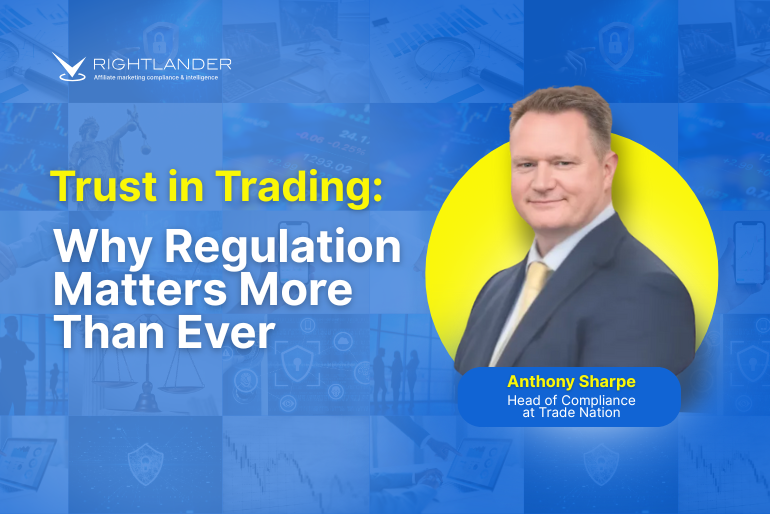After years of market turbulence, many everyday traders are left wondering: Who can I trust with my money? It’s a fair question in a space that’s seen its share of headlines. In this environment, regulation isn’t just a formality or a footnote — it’s become a crucial anchor of trust. Knowing a platform is properly regulated for traders navigating today’s fast-moving markets can make all the difference.
A Volatile Decade — And a Wary Public
The last ten years have seen seismic shifts in financial markets and not all of them have inspired trust.
In 2021, the GameStop–Robinhood saga cast doubt on platform transparency when Robinhood abruptly halted trading on certain stocks, leaving retail traders outraged and suspicious.
In 2022, the collapse of crypto exchange FTX rocked the digital asset world, highlighting the dangers of operating in unregulated environments and the perils of mismanaged client funds.
Over time, stories of unregulated offshore brokers disappearing with clients’ money have only added to a growing sense of caution.
For many new or less-experienced retail traders, these events sparked a crisis of confidence. The dream of independent trading began to look less like empowerment and more like exposure. Against this backdrop, regulation has emerged as a vital safeguard instead of a bureaucratic hurdle.
The Role of Regulation - Not Just a Badge, But a Shield
Regulators like the FCA (UK), ASIC (Australia), and others don’t just oversee how trades are executed; they also set strict standards for how brokers communicate with clients, particularly in marketing and advertising.
These standards include:
- Clear and fair marketing communications, ensuring that promotional materials don’t mislead or overpromise.
- Mandatory risk warnings, prominently displayed across websites, emails, and adverts to help clients make informed decisions.
- Strict rules around affiliate and introducer conduct, requiring brokers to monitor how third parties promote their services.
- Regular audits and content reviews, ensuring ongoing compliance with evolving rules and expectations.
- In this context, regulation serves as more than just a legal necessity. It’s an active consumer protection mechanism, particularly important in the digital age where marketing can travel fast and wide.
For retail traders, this means peace of mind: knowing that the platform they use must follow rules not just in how they handle money, but in how they attract customers. Trust starts with transparency and responsible marketing is a cornerstone of that trust.
Trade Nation’s View — Trust Built from the Ground Up
At Trade Nation, regulation isn’t just about meeting the minimum requirement — it’s about setting a higher bar.
“We strongly believe in the value of regulation and feel this gives our clients confidence when depositing and trading with us,” says Anthony Sharpe, Head of Compliance at Trade Nation. “We’re a company built on strong compliance foundations and see our compliance team as a way to grow the business, rather than a blocker to business.”
Trade Nation is regulated by several respected authorities, including the FCA (UK), ASIC (Australia), FSCA (South Africa), SCB (Bahamas), FSA (Seychelles), and most recently the CMVM (Portugal). Among these, the UK and Australian standards represent some of the most rigorous protections globally, including safeguards like zero negative balance policies and stringent controls around client money.
Even in jurisdictions where such protections aren’t required, Trade Nation voluntarily upholds the same high standards. Negative client balances are written off, and client funds are managed with the same care, no matter where a trader is based.
“We believe this gives our clients more trust in us,” Anthony adds. And it’s not just about internal operations. Trade Nation also holds its partners and affiliates to high compliance standards. Tools like Rightlander play a key role in this process, streamlining the vetting and ongoing monitoring of affiliate activity.
“Rightlander helps us proactively spot anything that might need closer review,” says Anthony. “Just as our clients rely on us to look after their interests, we rely on Rightlander to help protect them too.”
Transparency, Education, and Empowerment
Trade Nation believes that compliance is only one part of the trust equation; education is the other. The company is committed to ensuring that clients understand both the opportunities and the risks of financial trading.
“Financial trading isn’t for everyone,” Anthony explains. “We ensure that those clients who trade with us have the means and experience to do so. All our marketing and websites carry risk warnings, and we offer a comprehensive Knowledge Base, with articles, eBooks, and webinars to help clients better manage their trading.”
This educational approach empowers clients to make informed decisions which is a critical element of sustainable, long-term success in trading.
Trading on Trust: The Path Forward for the Industry
Today’s traders have more platforms and tools at their fingertips than ever before. But in a crowded, fast-moving market, trust is the real differentiator. Regulation, transparency, and education are no longer optional; they are essential.
Firms like Trade Nation, who actively go beyond compliance to build trust from the ground up, are helping to redefine what responsible trading looks like. For retail traders, the message is clear: Ask questions. Demand clarity. Choose platforms that are accountable.
In the end, trust isn’t built on flashy interfaces or bold promises. It’s built on protection, integrity, and a willingness to do what’s right, even when no one is watching.

 by Shenaly Amin with commentary from Anthony Sharpe, Trade Nation | 20 Jun 2025
by Shenaly Amin with commentary from Anthony Sharpe, Trade Nation | 20 Jun 2025
 4-min read
4-min read




